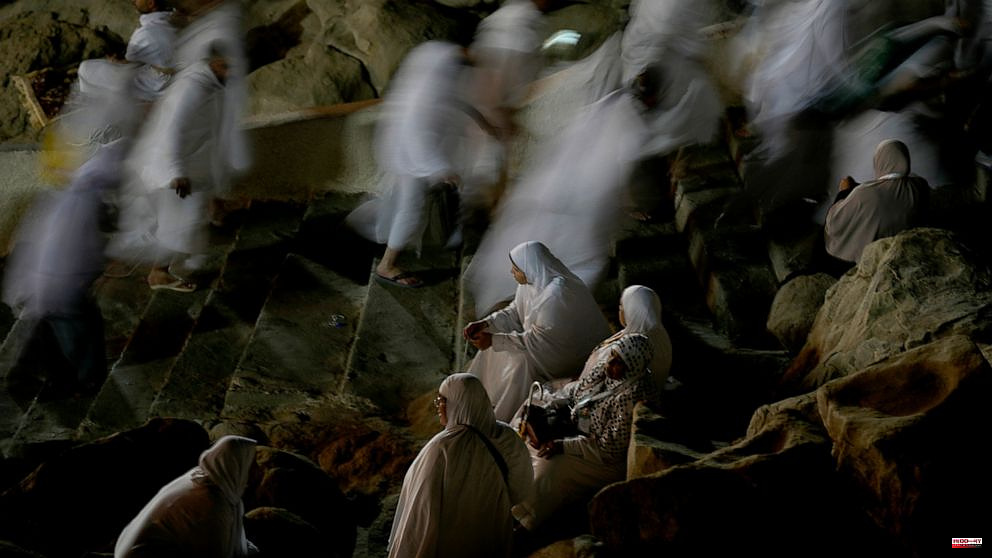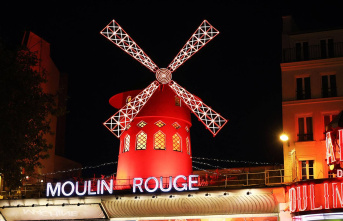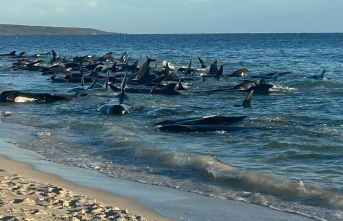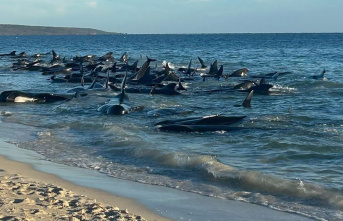MOUNT ARAFAT (Saudi Arabia) -- On Friday, hundreds of thousands of Muslim pilgrims around the globe raised their hands in prayer to God on Mount Arafat, Saudi Arabia. This intense day of worship is considered the culmination of the annual hajj.
Multitudes of people stood side-by-side, feet in front of their feet, during the day's emotional day for supplication at the desert valley, where Muslims believed the Prophet Muhammad had delivered his last sermon calling for unity and equality among Muslims.
Many pilgrims were moved to tears by the experience. Muslims believe that prayer at Mount Arafat (located about 20 km (12 miles) east from Mecca is their best chance to salvation and spiritual renewal. They set off for Arafat at dawn, singing as they trekked. They remain there until the early hours of the morning in deep contemplation, worship and worship.
Zakaria Mohammad, an Egyptian pilgrim praying while the sky was brightening over the hilltop, said "I feel so close to God." "He gave me so much joy. "This is how I feel now, joy, great joy."
Unstitched white sheets of cloth that resembled a shroud were worn by men, and women wore conservative clothing with headscarves.
Hajj is an obligation that Muslims must perform once in a lifetime. It involves the faithful following a route taken by Prophet Muhammad 1,400 years ago.
Khadije Isaac said, "God brought us here," as she travelled from Nigeria to Mount Arafat, her voice tingling with emotion. "I can't describe the joy that I feel."
For the past two years strict pandemic restrictions had prevented the event from taking place. This effectively canceled one of the largest and most diverse gatherings in the world and devastated many pious Muslims who had waited for a lifetime to make this journey. Although this year's pilgrimage is the largest since the virus hit, the number of worshippers attending remains below half the pre-pandemic peak.
All pilgrims who will perform the hajj in this year's edition of the Hajj are below 65 years old and have had their COVID-19 vaccinations.
Five days of rituals are performed by Pilgrims to honor the Prophet Muhammad, the prophets Ibrahim, Ismail, Abraham, and Ishmael, as well as the prophets Ismail and Ismail. The rituals started on Thursday with the circling the Kaaba, the black square at the centre of Mecca's Grand Mosque. This is the object Muslims face every day during prayers, wherever they may be.
Friday sunset will see the pilgrims march 9 km (5.5 miles) westward to Muzdalifa. There they will search for pebbles in the area to perform the symbolic stoneing of the devil. This rite will be performed in Mina, a small village where Muslims believe that the devil attempted to convince Ibrahim to submit to God's will.
To signify victory over temptation, Pilgrims will stone the devil. This ritual is notoriously a chokepoint for crowds. In 2016, thousands of pilgrims were killed in a bloody stampede. Saudi authorities did not offer a final death toll.
Saudi Arabia has built a high speed rail link that will ferry pilgrims between holy sites. This is their most visible effort to improve accessibility. Special electronic gates allow pilgrims to enter. To control the crowds and protect the area, thousands of police officers are on duty.
Public health is a concern because so many people are from so many different places. Saudi Arabia's Health Ministry advised pilgrims to wear masks to stop the spread of coronavirus. However, the government has lifted the mask mandate and other precautions.
The ministry advised pilgrims to drink water, and be aware that heat stroke can occur in the desert where temperatures can reach 40 degrees Celsius (105 Fahrenheit).
After the hajj, both men and women are required to shave their heads.
Muslims around the globe will celebrate the end of their pilgrimage with Eid al-Adha (Festival of Sacrifice). This holiday celebrates the willingness of prophet Ibrahim to sacrifice his son Ismail for God's sake. Muslims usually slaughter cattle and sheep, and divide the meat between the poor, their friends, and their families.












